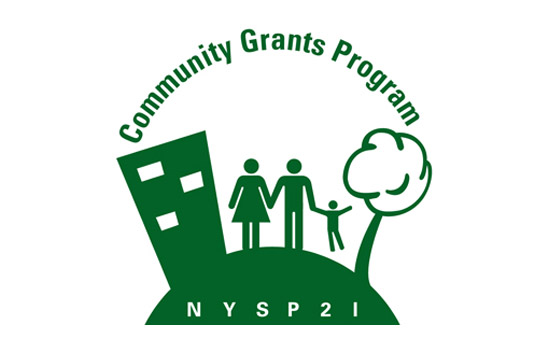NYSP2I names Community Grants Program winners
Institute will provide nearly $240,000 to environmentally friendly initiatives at the local level
The New York State Pollution Prevention Institute (NYSP21) has announced awardees of its 2016-17 Community Grants Program as part of the organization’s ongoing efforts to continue improving the health and environmental quality of New York state.
NYSP2I—which is sponsored by the New York State Department of Environmental Conservation through the Environmental Protection Fund and led by Rochester Institute of Technology’s Golisano Institute for Sustainability—is funding proposals from 12 organizations statewide following the completion of a competitive review process. The Community Grants Program provides nonprofit organizations and local governments both financial and technical assistance for projects that promote and implement pollution-prevention practices at the community level.
NYSP2I announced the funding during a Facebook Live event on Nov. 17.
“The Community Grants Program encourages partnerships that provide education and outreach aimed at making New York state more sustainable,” said Charles Ruffing, NYSP2I’s director. “The goal is to connect with communities across the Empire State by providing much needed financial and technical support for programs and initiatives at a grassroots level. “
“We congratulate all of this year’s awardees,” Ruffing added. “Their work is vital to our ongoing mission to provide a statewide, comprehensive program of solutions for complex environmental programs.”
“The New York State Department of Environmental Conservation is proud to sponsor these 12 forward-thinking organizations across the state,” said DEC Commissioner Basil Seggos. “Increasing awareness at the community level by supporting smart pollution-prevention practices is key to long-term sustainability. Each of these projects demonstrates innovative practices to preserve our waterways, use raw materials more efficiently, divert food waste from entering our landfills, and to conserve water and energy. Congratulations to this year’s award winners and thank you for your commitment protecting New York’s environment and precious natural resources.”
The winning proposals include:
- NYS Restaurant Association Educational Foundation: The Restaurant Food Waste Project aims to help state restaurants become more aware and committed to the critical issue of managing food waste. This project will promote the importance and strategies of food waste management while at the same time supporting increased restaurant profitability.
- Syracuse University: Plastic-Free Waterways through Art seeks to use visual arts to engage and empower statewide communities to decrease single-use plastic consumption by inspiring consumers to change their habits and adopt practices that reduce their utilization.
- Hudson River Sloop Clearwater: Microplastics Pollution Prevention will educate teachers and children on how extensive microplastics pollution has become in the Hudson River, and will focus on the actions that people can take to reduce them.
- ENY Farms!/United Community Centers: East NY Compost Project is designed to expand its community composting work by increasing its capacity to manage food scraps the organization collects. It also will enable the project to reliably supply gardens with locally produced composting material.
- Central New York Regional Planning and Development Board: Classroom Energy Challenge/KiloWatch seeks to teach school teachers and administrators as well as students and their families about conservation and renewable energy by promoting energy sustainability through education, emissions monitoring and energy-use reduction inside area homes and throughout the community.
- Riverkeeper: Empowering Communities to Prevent Stormwater Pollution aims to reduce pollution in the Gowanus Canal and Newtown Creek by empowering community residents and connecting them to their waterways. A community toolkit will be produced that will enable this project to be easily replicated in other neighborhoods around New York City.
- The Wild Center: The Adirondack Youth Climate Program will increase pollution-prevention awareness and decision-making skills in high school students throughout the Greater Adirondack region, while fostering community-based climate action projects across North County school districts.
- Buffalo Niagara Riverkeeper: Preventing Pollution through Volunteer Ambassadors will develop a program to train dedicated volunteers to represent the organization within the Niagara River Watershed, while increasing the capacity to raise awareness of water pollution issues and how to reduce them.
- Clarkson University: Watershed Education through STEM Enrichment is designed to engage and inform students and teachers about local tributary health and to empower the community to prevent pollution in the region.
- Center for Creative Land Recycling: Integrating Pollution Prevention Measures into Brownfield Remediation and Redevelopment seeks to target 120 communities that comprise New York state’s Brownfield Opportunity Areas by offering workshops, peer learning and educational materials on environmental and pollution-prevention practices. These practices will create healthier, more resilient and adaptive communities.
- Adirondack North County Association: Organics Recycling Community Outreach Plan-North Elba Biodigester will support the comprehensive educational programming required to increase awareness, understanding and the training necessary to fully implement a source separated organics diversion program for the region, therefore reducing greenhouse gas emissions and landfill waste generation.
- New York Product Stewardship Council’s NY Textiles Summit: Innovations in Manufacturing Waste Reduction and Reuse will raise public awareness about the environmental impacts of textiles as well as the work of the Re-Clothe NY Coalition—a public-private initiative established to increase the reuse and recycling of textiles statewide.
Now in its ninth year, NYSP2I’s Community Grants Program has supported 90 projects throughout New York state with grants totaling more than $1.3 million to date. Past projects include green chemistry workshops for high school students and teachers; homeowner education encouraging environmentally-conscious practices; and rainwater harvesting and education regarding deconstruction and green building renovations.
About the New York State Pollution Prevention Institute
Sponsored by the New York State Department of Environmental Conservation, the New York State Pollution Prevention Institute is led by the Golisano Institute for Sustainability at Rochester Institute of Technology, and is a partnership between RIT, Clarkson University, Rensselaer Polytechnic Institute and the University at Buffalo. NYSP2I’s statewide reach is supported by partnerships with the state’s 10 Regional Technology Development Centers.
NYSP2I’s goal is to make the state more sustainable for workers, the public, the environment and the economy through pollution prevention. Pollution prevention is reducing or eliminating waste at the source by modifying production processes, promoting the use of non-toxic or less-toxic substances, implementing conservation techniques and reusing materials rather than putting them into the waste stream.









